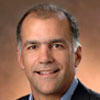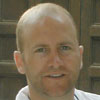There’s a lot of loot sitting on the med-tech sidelines these days. According to research by MassDevice.com, the top five medical device companies are sitting on a combined $17 billion in free cash.
With all that money to burn, you’d think that the med-tech mergers & acquisitions market would be a busy place. But aside from a few blockbuster deals and some lower-value transactions, medical device M&A activity is in a slump.
But there are also a slew of med-tech start-ups slavering for a taste of all that cash, hoping to land a corporate sponsor who will shepherd them through the development phase and buy the technology outright once it (presumably) proves out.
The imbalance between capital on one side and innovators on the other might be one reason there seems to be a glimmer of barely contained desperation in the eyes of venture capitalists. It was evident in the faces of the venture capitalists gathered back in December at the Mass. Institute of Technology to hear a presentation by Richard Meelia. The Covidien plc CEO pulled the trigger on one of the biggest recent med-tech deals, Covidien’s $2.3 billion buyout of ev3 in June 2010.
Among the crowd of business development executives from hungry start-ups, various job seekers and others hoping to pique the interest of one of med-tech’s godfathers were several prominent venture capitalists. Getting anyone in the VC community to speak on the record about their challenges is difficult; any admission of frustration or weakness in the press could come back to haunt them in negotiations. Omar Amirana, a partner at Boston, Mass.-based Oxford Biosciences Partners, was brave enough to comment, but chose his words carefully (as well he might, what with the $1 billion-plus stake Oxford Biosciences has in life science companies).

Amirana
"The stats speak for themselves,” Amirana told me. “There’s been a significant reduction in the number of companies that have exited. The data says that M&A transactions down precipitously relative to historic norms.”
The venture capital community reacted to the slumping economy by “extending cash runways, reducing burn rates, becoming more capital efficient and focusing companies on mission critical activities," he added
No one knows when or how the big companies will stop hoarding and start pumping money back into the innovation pipeline. But at least two firms think software and social media might help ease the logjam.
Innovating from the bedside
Will Febbo, the CEO of MedPanel LLC, thinks his company’s insights (and the stable of more than 500,000 physicians it has on hand for surveys) might be one answer.
MedPanel, based in Cambridge, Mass., has been surveying physicians about technology and innovation on behalf of life science companies and Wall Street investors for years.
But it was a study the company ran in 2009 that really opened Febbo’s eyes to the failure of two of the most critical pieces of the innovation puzzle to work together.

Febbo
"We did a survey of about 100 physician-inventors. Seventy percent of those physicians approached companies with their ideas and came away frustrated," Febbo recalled. "Then we reached out to a handful of business development executives and asked them, ‘What’s not working here?’"
The responses led Febbo to conclude that too many business development executives at medical device companies spend a majority of their time turning down deals that don’t fit their portfolio — and not enough time reviewing the ones that do.
The resulting idea is elegant in its simplicity. MedPanel would provide something the business development people could not: Empirical evidence from a wide range of the companies’ customer bases about whether or not those physicians would use a device.
“The idea is, let’s start at the bedside and work back to the science," Febbo explained.

MedPanel launched in 1999, when Febbo and his brother bought a focus group company. Febbo had spent a decade in M&A and his brother is an oncologist, making them a good fit for the push and pull between science and business in the med-tech game.
At the time, there was a lot of investment going into the oncology market and Febbo wanted a part of it. The two brothers theorized that using the web to create a large-scale focus group of oncologists was the ticket.
“We figured it was a more elegant solution to communicate,” he said.
His bet proved correct. Amgen (NSDQ:AMGN), MedPanel’s first client, was soon followed by others. By 2005, after quickly building up a large database of physicians to tap for input, MedPanel launched a Financial Services division, which peaked as the market experienced the boom years of the mid-oughts.
The growth led to an exit to MCF Corp., an investment bank out of San Francisco- that re-branded MedPanel as Panel Intelligence and expanded its focus to include markets beyond the life sciences.
But in 2009 Febbo bought the company back, re-launching it under the MedPanel banner and re-focusing the firm on the life sciences market. Still, that experience at an investment bank helped him clarify his vision.
“I was exposed to hundreds of fund-raises from the buyer’s perspective and I started to see tremendous inefficiency in the system,” he said. “I wanted to use data to fill in the ‘independent voice.’”
That led to the physician-inventor study in September 2009, which in turn convinced Febbo to launch a new division of MedPanel aimed at facilitating the innovation process. His first thought was to use the MedPanel platform to help start-ups prove their market potential, which would have been a huge boon to those firms, but proved to be a non-starter because the cash-seeking start-ups couldn’t provide enough capital to sustain the business.
Back at the drawing board but still convinced the basic idea was sound, Febbo decided to take the idea to the buyer side of the equation, rather than the sellers’. MedPanel would offer its services to the top 100 medical device companies as a way to help them cull the clutter of potential deals.
Febbo says his company can act as the research arm of med-tech companies’ business development offices or even for the in-house venture arms that have sprouted at several large medical device companies. Those firms can tap MedPanel’s 500,000-plus stable of physicians to vet the market potential of products that have pinged their radar.
MedPanel’s cache of physicians, strongest in oncology, cardiology and orthopedics, has attracted two major medical device companies as clients, according to Febbo.
The ability to validate concepts with a surrogate for the target market could be a huge boon for innovators, according to Zen Chu, the founder of Accelerated Medical Ventures and the former director of business development at Harvard Medical School’s Wyss Accelerator Fund.
“Until you get things in front of the docs, it’s tough to get any feedback,” Chu said. “Getting good data is critical. There’s just too little feedback at the concept-testing stage.”
The downside, Chu added, is that MedPanel’s service charge is still very high.
“If they could only lower the barriers of entry,” he said.
Lowering that bar is in Febbo’s future plans, somewhat. As soon as the concept is validated with clients his goal is to bring the MedPanel platform to the innovation world, even acting as an investment fund to good ideas.
Cutting through the information overload
David Greenwald was finishing a doctorate in genetics at Tufts University in 2008 when he launched Relay Technology Management with co-founder Brigham Hyde. The start-up software company uses a proprietary algorithm to validate the specific merit and commercial potential of an idea.
Greenwald, who is president of the Boston, Mass.-based firm, said the idea came out of the realization that there’s a core inefficiency in identifying early-stage technologies at medical device firms, academic research institutions, pharmaceutical and biotechnology companies. The culprit? Information overload.
With more than 7,000 medical journals and more than seven million patents in the pipeline at the U.S. Patent and Trademark Office, there was simply no way to apprehend the true scale of innovation. Greenwald, theorizing that companies needed a way to cut through the noise, devised a way to deliver top technology prospects to decision-makers.

Greenwald
“No matter how many PhDs or MBAs you put on project, their time is expensive and it’s better spent looking at the top prospects rather than doing a lot of diligence looking at thousands of articles, patents and trials,” he explained.
And RelayTM can pinpoint innovative thinkers, creating profiles of scientific investigators for companies to track, Greenwald added.
To prove the software’s efficacy, RelayTM put the algorithm through its paces on both retrospective and prospective studies. One prospective study identified 10 compounds out of 200 in the acute myeloid leukemia space with the potential to be licensed for production. To date, six of those compounds have been licensed by the pharma industry, Greenwald said.

Although it’s initially aiming at the pharmaceutical space, RelayTM has its eyes set on the medical device world, which is keen on identifying the innovators and physician-inventors. The company is running its first round of fundraising, looking to fully commercialize its software platform.

